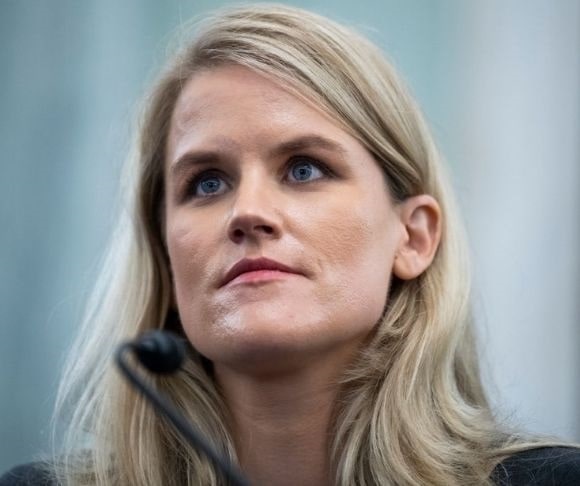On Oct. 25, former Facebook data scientist Frances Haugen testified before British Parliament on her experience at the social media conglomerate, just three weeks after an appearance before the U.S. Congress, when she told lawmakers that Facebook is “unquestionably” fueling hatred and addiction on its platform. She was invited to testify before the British government to lend her expertise on pending legislation that aims to crack down on harmful content on social media and rein in their unyielding power. In September, she released tens of thousands of internal documents regarding Facebook’s sordid affairs.
Members of the Online Safety Bill committee in London heard her aggressive criticism of Facebook employees, algorithms, and Mark Zuckerberg. Although most of what Haugen shared has already been leaked to U.S. media and shared with Congress, her indictments appeared to have an impact on parliamentarians.
Watershed moment for social media from whistleblower Frances Haugen to Parliament…saying Facebook subsidises hate, research recognises children have an “addict’s narrative” with instagram, not possible to make safe for 14 year olds, & “horrific tales” of impact in poor countries
— Faisal Islam (@faisalislam) October 25, 2021
For People or Profit?
Facebook’s toxic internal culture concentrates on maximizing profits, not minimizing its negative impacts on societal relations and functionality. According to Haugen, “there is no will at the top to make sure these systems are run in an adequately safe way.”
Haugen testified to Parliament that the company is “making hate worse” to grow its consumer base. Triggering anger among users is the easiest way to build its audience. Its algorithms also are designed to direct users to extreme content and “bad actors.” Low-level efforts by Facebook to protect users from degrading or hateful content are ineffective, according to Haugen, due to inherent biases that promote revenue growth,
Last month when she went public, she accused Facebook of profiting from driving political divisions, spreading misinformation, and being well aware that its platform can be harmful to young users. In her appearance before Parliament, she did not shy away from reiterating her initial claims. At one point she said, “Facebook has been unwilling to accept even little slivers of profit being sacrificed for safety.”
The data scientist made sure not to attack Facebook employees but rather the company’s infrastructure and design. She said the social media behemoth is filled with “good, kind, conscientious people,” but they work on ill-based incentives and financially established goals.
Failed Policing

Frances Haugen
(Photo By Tom Williams/CQ-Roll Call, Inc via Getty Images)
Haugen shared her concerns regarding the radicalization of services such as Facebook groups. She said they encourage intense communities that will tear at the social fabric. “I am deeply concerned that they have made a product that led people away from their real communities and isolated them in these rabbit holes and filter bubbles.”
Instagram’s effect on mental health and body dysmorphia in teenagers is a growing concern in the world. Haugen explained that released documents showed Facebook’s research found a connection between its young users and addicts who are unable to remove themselves from a substance/service that makes them miserable and sad. It also identified Instagram to be the most dangerous social media app, even more than TikTok and Snapchat.
Very Real Ramifications
Haugen implored MPs to take immediate action in regulating Facebook’s operations and limit its influence. Zuckerberg “has unilateral control over 3 billion people” with his position and access to decision-making and power. He controls the business, including Instagram and WhatsApp.
The whistleblower shared her concerns over how Facebook can “mislead” the public over its ability to tackle disinformation outside the English-speaking world. She cited the horrific ramifications that created societal divisions in Ethiopia and Myanmar.
~ Read more from Keelin Ferris.




